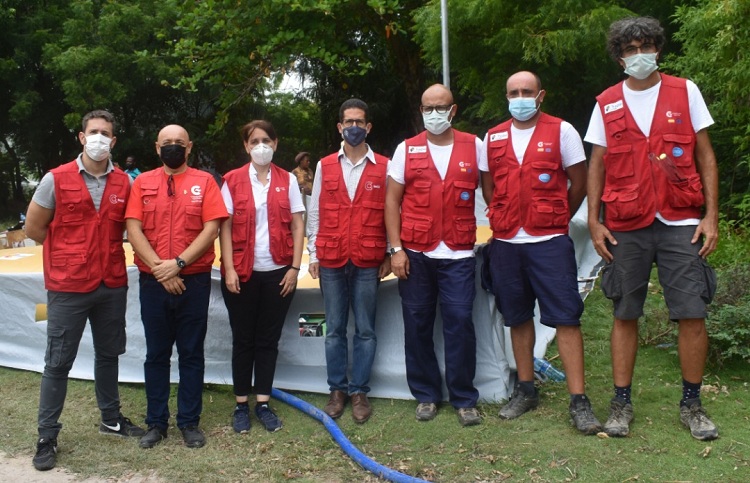The Diplomat
The Spanish Agency for International Development Cooperation (AECID) has participated in the installation of three water purification systems that will benefit about 8,400 people in the southern part of Haiti, the most affected by the earthquake of August 12.
The installation of these three water purification points in Cavaillon, Les Cayes and Arrondissement des Chardonnières has been possible thanks to the collaboration between the Haitian National Directorate of Drinking Water and Sanitation (DINEPA), the Spanish Technical Cooperation Office and the humanitarian aid experts of the Spanish Technical Team for Emergency Aid and Response (START).
According to the Agency, these are two simplified systems (SSA) and a portable plant (better known as SETA), which make the water extracted from surface streams (generally rivers) drinkable for its subsequent distribution, either directly, thanks to the system of multiple taps installed next to the treatment plants, or through its distribution in trucks to more distant populations. The three new purification points will supply drinking water to some 8,400 people in the surrounding area.
On August 31, the Spanish ambassador to Haiti, Sergio Cuesta Francisco, and the general coordinator of Spanish Cooperation in the country, Manuel Alba Cano, visited the areas most affected by the earthquake. There they joined a delegation composed of representatives of DINEPA, the European Union and UNICEF, which visited the water treatment units set up by Spain. They also held several meetings with local authorities to learn more about the operation of these facilities and the surface water purification processes, and visited the facilities of Action Against Hunger in Camp Perrin.
In parallel to the emergency deployment, AECID continues to work with national authorities and other institutional partners to carry out a complete assessment of the damage caused by the earthquake to water and sanitation infrastructures, with the aim of planning actions that will allow a lasting recovery of the affected populations.
Haiti is the country that receives most donations from the Cooperation Fund for Water and Sanitation (FCAS), the instrument of the Spanish Cooperation for the promotion of water and sanitation services in Latin America. Only 62% of the Haitian population has access to improved water sources, with large differences between urban and rural populations.






